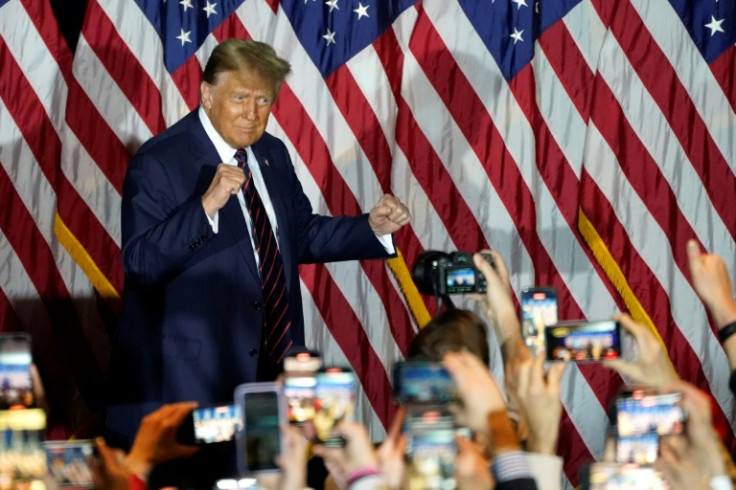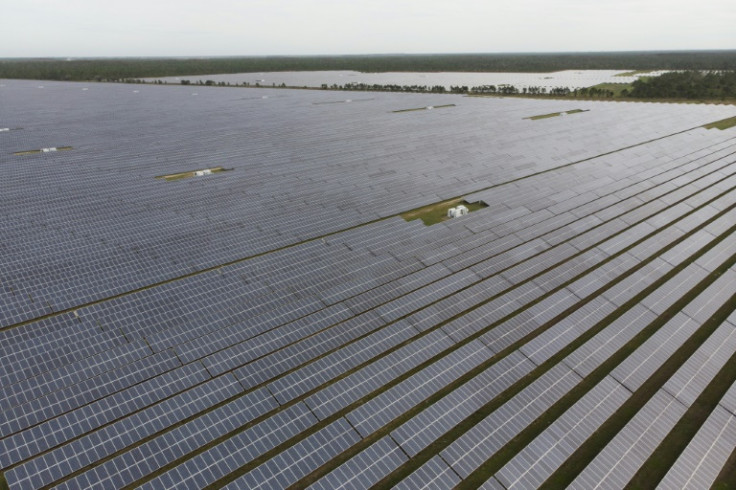What US Economic Measures Can Be Expected If Trump Is Reelected?

Former US president Donald Trump campaigned on the economy during his failed reelection bid in 2020 and it remains a major theme in his push to retake the White House again in 2024.
Inflation and high interest rates are at the heart of Americans' concerns as Trump steers towards a probable November rematch with President Joe Biden.
Here are three subjects likely to feature among his economic priorities if he returns to the White House:
"When companies come in and they dump their products in the United States, they should pay automatically, let's say a 10 percent tax," Trump told Fox Business back in August.
"That money would be used to pay off debt," he added.
According to the World Trade Organization (WTO), tariffs on goods entering the United States currently average 3.4 percent, with disparities depending on the product and country of origin.
It is not clear, however, whether this automatic "10 percent tax" would replace or be added to the existing one.
This "trade war" would be key among Trump's economic policy if he returns to office, Marcus Noland, vice president of the Peterson Institute for International Economics (PIIE), told AFP.
He said he worries that this will "have additional effects of further weakening the international trade system," and do "further damage to the WTO and the rules-based trade order."
And with consumers already struggling to cope with inflation, higher tariffs could push up the price of imported goods.
China, in particular, is likely to remain in the former president's crosshairs, George Washington University professor Steven Hamilton told AFP.
"There's a lot of unknowns about what will happen post the election," he said, adding that "Trump seems to have focused on the trade war with China."
One of the main measures of Donald Trump's first term in office was a major package of tax cuts, introduced in 2017, which impacted both households and large companies. These reforms are due to expire in 2025.
"I would assume his goal and, you know, a lot of the people that are around him, would want to extend what they did," Richard Stern, a director at the Heritage Foundation, a conservative think tank, told AFP.
Nevertheless, with higher interest rates driving up the cost of debt, "there's gonna be a lot of pressure to have the tax reform bill have less on paper deficits than it had last time," he added.
Ben Ritz of the Progressive Policy Institute (PPI) told AFP he believes "the centerpiece of Trump's economic agenda is going to be trade wars and tax cuts."
"He's gonna say that's putting money in Americans' pockets," said Ritz, who is director for PPI's Center for Funding America's Future.
"But what it's really going to be doing is just adding to our debt, increasing the cost of borrowing, increasing the cost to consumers, and probably isolating us internationally from our allies," he added.
Electric vehicles and solar panels are also in danger of losing their momentum if Trump returns as president.
The Inflation Reduction Act (IRA), which passed in the summer of 2022, will direct around $370 billion towards clean energy.
It is "probably Biden's biggest initiative," notes Hamilton.
Trump is determined to overhaul the IRA and "maximize fossil fuel production" if he wins a second term, advisers to the Republican presidential hopeful told the Financial Times in November.
Such a move would "strangle a blossoming industry of green technologies that the IRA was designed to stimulate," said Ritz from PPI.


© Copyright AFP 2024. All rights reserved.





















